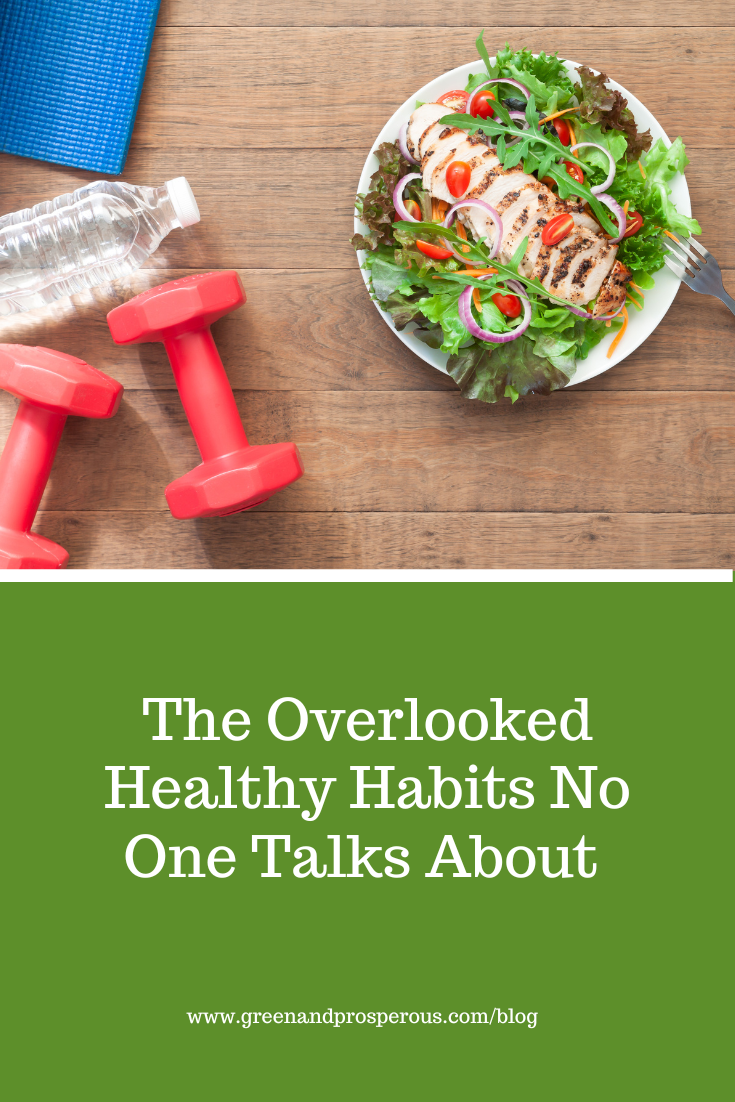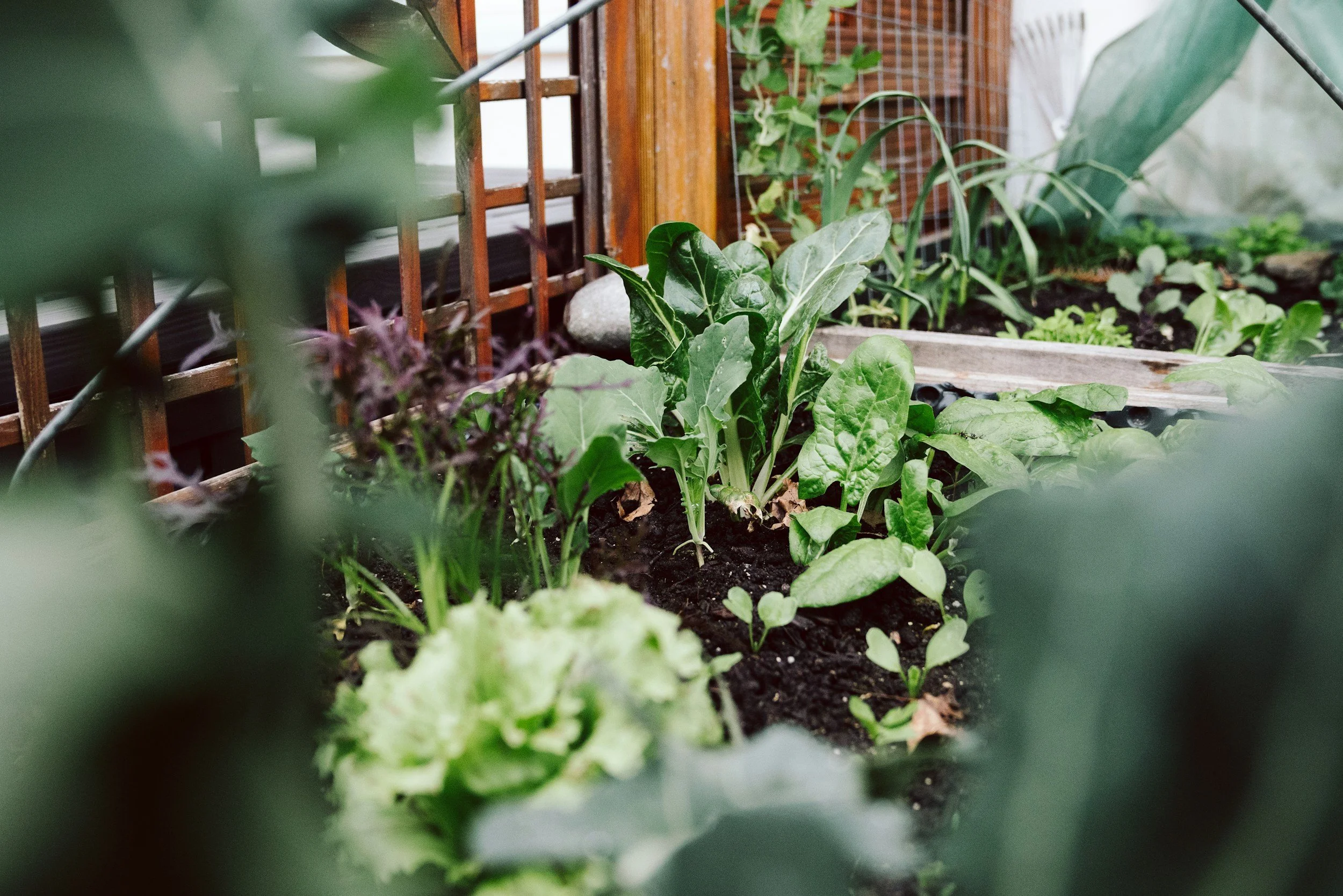The Overlooked Healthy Habits No One Talks About
/You’ve probably seen hundreds of posts online about routines, tips, and must-have products that promise to change your life. But most people don’t talk about the things that quietly support your health behind the scenes. These aren’t trends or transformations. They’re the small, often unglamorous habits and shifts that make a long-term difference without much spotlight. This article is about those simple actions and how they can help support how you feel, function, and live.
1. Keeping the Basics Within Reach
Sometimes the biggest support for wellness comes from making things easy. When your water bottle is on your desk, you're more likely to sip it throughout the day. When fresh food is the first thing you see in your fridge, it’s easier to reach for something nourishing.
This goes for supplements, too. For people who choose to include supplements in their day, having them stored in a visible, convenient spot is one of the easiest ways to build consistency. Some individuals choose to include health-friendly options from USANA Health Sciences in their routine. They’re not a shortcut, but when combined with mindful meals and movement, they can support your overall wellness goals in a practical way.
2. Consistency Without Pressure
One of the most underrated supports for health is consistency. But that doesn’t mean waking up early every day or doing the same workout six days a week. It means sticking to habits that work for your life, even if they’re small.
It could be a 10-minute walk after dinner. Or having a regular sleep schedule that helps you feel more present during the day. These habits don’t need to be intense or time-consuming. The real value comes from repeating them often enough that they become natural and not forced.
3. Taking Breaks from Screens
You don’t need a full digital detox to benefit from small breaks. Pausing your screen time for a few minutes each hour can help you feel more grounded. Whether it’s standing up to stretch, sitting outside for a few minutes, or stepping away during meals, these small breaks can help your body and mind reset.
You don’t have to announce it or make it a “rule.” Just noticing when you’ve been on a screen too long and making a shift can quietly support your focus and energy.
4. Eating Without Distractions
Another thing that doesn’t get much attention? How you eat, and not just what you eat. When you eat while working, watching something, or scrolling, you may finish the meal without even realizing it.
Sitting down to eat without distractions helps you slow down. You’re more likely to notice when you’re full and actually enjoy the meal. It also gives your body a moment of pause in the day, which can support how you feel both physically and mentally afterward.
5. Making Sleep a Priority
Sleep is often overshadowed by more “active” wellness habits, but it’s one of the most supportive parts of any routine. That doesn’t mean sleeping a perfect eight hours every night—it just means creating an environment that encourages rest.
This could look like keeping your room cool, using blackout curtains, or avoiding screens before bed. A calm, simple nighttime routine like reading, light stretching, or skincare can signal that it’s time to unwind. None of it has to be complicated, but the impact adds up.
6. Letting Movement Be Flexible
Exercise doesn’t always need to be structured. Some of the most consistent movement happens when you allow it to fit your day instead of fighting your schedule.
Maybe it’s walking to do errands instead of driving. Maybe it’s dancing while cleaning or stretching before bed. These short bursts of activity support your physical wellness without needing to be part of a complicated plan. They’re flexible enough to work in most lifestyles, and that’s what makes them sustainable.
7. Having a Calm Start (Even If It’s Short)
You don’t need an elaborate morning routine to feel prepared for the day. Even five minutes of calm, whether that’s sitting with your coffee, listening to music, or simply avoiding your phone for a little while, can set a quieter tone.
A slow start doesn’t have to involve meditation or journaling. It just needs to feel calm to you. That pause can help you ease into the day instead of rushing into tasks, which supports your overall sense of balance.
8. Saying No to What Doesn’t Work
Supporting your wellness doesn’t always mean adding more to your day. It can also mean being honest about what doesn’t feel right. Skipping workouts that leave you drained, avoiding trends that don’t align with your values, or setting boundaries around social plans are all choices that can help you stay consistent with what does help.
It’s not about being perfect. It’s about paying attention and being willing to adjust. That small shift can change how you approach your habits in a more sustainable way.
9. Gentle Self-Awareness
You don’t have to track every step, meal, or feeling to be mindful of your wellness. Sometimes just noticing when you're feeling tense, low-energy, or off balance is enough to make small changes.
Maybe you realize you’ve been eating quickly and decide to slow down. Or maybe you notice that certain habits are leaving you feeling more tired than supported. This awareness helps guide your choices without becoming obsessive or rigid.
10. Personalizing What Support Looks Like
At the end of the day, no two people need the exact same things. What feels supportive for you might not work for someone else — and that’s okay. The key is figuring out what quietly makes a difference in your own routine.
It might be having nourishing meals prepped, taking a short walk after work, or having a few products you use consistently. It might be keeping things simple on busy days and allowing flexibility during slower weeks. Wellness doesn’t have to be loud to be real. It just has to work for you.
Most of what supports wellness long term isn’t flashy, and it rarely goes viral. It’s found in the habits that are small, repeatable, and realistic. By noticing what’s helping you feel more balanced and making it easier to repeat those things, you build a routine that supports you quietly and consistently, without pressure or perfection.
About the Author:
Henry Kingston loves food and believes eating should be simple and fun. He enjoy sharing easy tips on how to enjoy your favorite meals without stress. In his writing, Henry Kingston helps people eat well without making things complicated. When not writing, he love trying new recipes and finding simple ways to make food taste great.
You may also be interested in…










































Healthy living is not about perfection. It is about consistency, intentional choices, and building habits that support your body, mind, and environment over time. Whether you’re just starting your wellness journey or refining long-established habits, this pillar guide will walk you through the foundational components of true well-being.